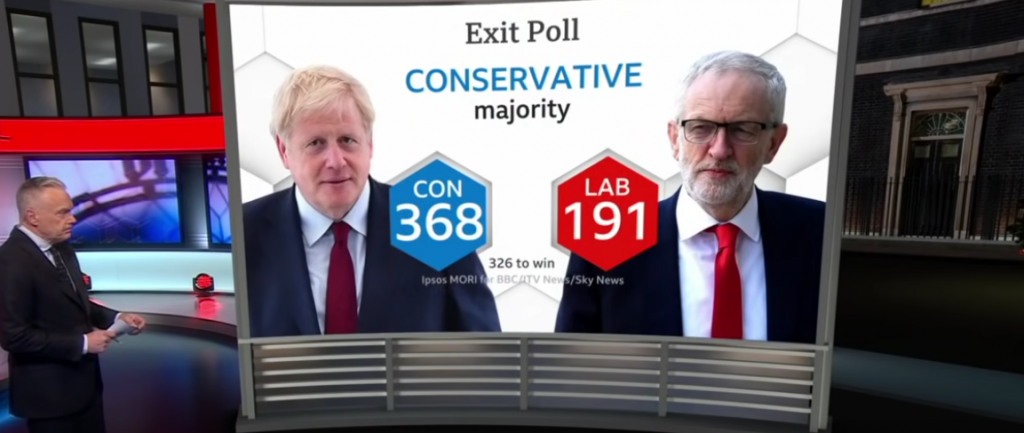Why the Conservatives could increase their majority

As has been noted before on this site, the Tories are “uncoalitionable”. [uncoalitionable] A swing against the party at the next election and loss of seats could leave the Conservative Party still with most seats in a Hung Parliament and yet unable to form a government due to a lack of potential allies.
Chesham & Amersham shows the Tories could be vulnerable to the Lib Dems in some seats in the South and a swing towards Labour could see the Tories lose seats to Labour even with a healthy poll lead. In the last election the GB vote margin for the Tories was 11.8%. Traditionally too Governments almost always lose share and votes so we certainly should expect a reduced majority, or possibly no majority and Keir Starmer as a minority Prime Minister.
But could the Tories increase their majority? Six reasons why they might.
New Boundaries – The boundary review is forecast to give the Tories between 10 and 20 extra seats, that’s a notional landslide majority of 100 to 120 going into the next election.
The death of the Brexit Party – Hartlepool showed the potential for the Tories to mop-up some of the Brexit Party vote. According to analysis by John Curtice, Stephen Fisher and Patrick English the Brexit Party saved 25 Labour seats in 2019. If Refuk can’t maintain the votes of the Brexit Party that’s potentially a 130 seat majority, without considering boundary reforms, if the Conservatives could gain these seats like Hartlepool next time.
Combine these two factors and it is quite possible the Conservatives could be on an effective starting point of a 100-140 seat majority before considering swing and losses to the Lib Dems. That gives a small buffer to lose eg Remain seats to the Lib Dems or seats to Labour via swing, while still finishing ahead of last time.
The pendulum is broken – The assumption of the past of a pendulum effect in British politics has not worked in the past three General Elections, nor for that matter the past decade in Scotland. For three General Elections in a row the Conservative Party has from Downing Street increased its vote share higher than it received the previous election.
The rise of the Greens – The Greens are hitting new heights in the polls and some of these seem to be disaffected Labour voters who aren’t happy with Labour moving away from Corbynism. Will these losses to the left ‘return home’ to Labour at the next election? Possibly yes, but possibly no. Recall that in 2015 the UKIP vote rose from 3.1% to 12.6%. It is possible the Greens could be UKIP du jour.
Party Opinion Polls – The Tories have throughout this Parliament so far been almost consistently in the lead in the polls nearly two years after the last election. If this can be maintained until the next election then there is the potential for some ‘swingback’ to the Government closer to the General Election that makes a lead comparable to the last election possible. In 2015 David Cameron achieved swingback that took the Conservatives from consistently behind in the polls to increasing their seat total with the first Conservative majority in decades.
Change of leadership – Finally if the current PM does become unpopular then there is always the possibility for the Conservatives to replace him with a new leader prior to the election. A new leader might struggle to hold onto Boris’s 2019 coalition but would still get the benefit of the boundary reforms and might get their own bounce.
I’ve been looking for political betting markets on this subject. The only one I have seen so far is Ladbrokes “Conservatives to increase their majority from 2019 (80 seats)” at 5/2. While I think its possible that the Conservatives could increase their majority, I don’t think its value at 5/2 and would be looking for 5/1 or above. Ladbrokes only offer one side of that bet and at 5/2 I’d be taking the other side of the bet.
If there are any other markets available to bet on this with more value, then please could someone share in the comments? Or perhaps this could be an interesting market for an innovative Betting Exchange with an interest in politics to open a market on?
Philip Thompson